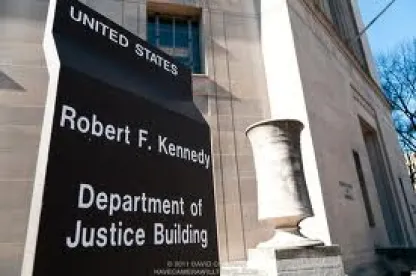On Tuesday, the Securities and Exchange Commission (SEC) and Department of Justice (DOJ) announced that both had reached agreements with medical diagnostics and life sciences manufacturing company Bio-Rad Laboratories to resolve allegations that Bio-Rad violated the Foreign Corrupt Practices Act (FCPA) in connection with its engagement of third party intermediaries in Russia, Thailand and Vietnam. The respective releases reveal information about the settlement that places it squarely in line with some emerging trends in the FCPA enforcement arena.
The SEC alleged that Bio-Rad “lacked sufficient internal controls to prevent or detect” $7.5 million in bribes that were paid to Vietnamese and Thai foreign officials during a five-year period and recorded as legitimate expenses, including commissions. The SEC also alleged that Bio-Rad engaged foreign agents primarily to influence Russia’s Ministry of Health and assist the company in winning bids. Bio-Rad agreed to pay $40.7 million in disgorgement and interest under the SEC’s order and to report to the SEC for two years. Bio-Rad also agreed to enter into a non-prosecution agreement (NPA) with the DOJ pursuant to which it agreed to pay a penalty of $14.35 million, to periodically report to the DOJ for two years, and to engage in remedial actions, including improving its internal controls and compliance functions.
First, the Bio-Rad settlement with the DOJ appears to be predicated entirely on violations of the internal controls and accounting provisions of the FCPA. Even then, it is difficult to see where the company’s actions fell short in terms of internal controls. The DOJ and SEC releases contains no allegations that Bio-Rad had anyactual knowledge of any violations of the anti-bribery provisions of the FCPA. Rather, the releases allege that Bio-Rad simply didn’t do enough to prevent a corrupt scheme and employees seem to have ignored “red flags.” For example, the DOJ release asserts that Bio-Rad SNC, a French entity, retained third party intermediaries and paid them commissions of 15-30 percent in exchange for services connected with government sales in Russia. According to both releases, employees at Bio-Rad reviewed the commission payments, saw red flags, but ignored them. The release further alleges that Bio-Rad generally failed to implement adequate internal controls to prevent violations. What is unclear is howBio-Rad’s internal controls were inadequate or what was missing in terms of a compliance program. The release seems only to reflect that there were bad actors that approved payments in spite of red flags, not that there were no systems in place to identify red flags, or that the company did little to prevent the bad acts.
Second, with this announcement, Bio-Rad becomes only the latest example of a company that voluntarily disclosed potential violations of the FCPA and fully cooperated with the subsequent investigation, only to be hit with significant disgorgement requirements and penalties. The releases note repeatedly that Bio-Rad self-disclosed and cooperated in full with the DOJ and SEC investigations. However, there is little indication as to whether and to what extent disclosure and cooperation benefitted Bio-Rad. (Indeed, the FCPA Blog estimated that the disgorgement amount in this case is the tenth-largest disgorgement amount in an FCPA case in SEC history.) It is possible that the SEC agreed to back away from its traditional “1-to-1” disgorgement-to-penalty ratio as a result of the cooperation, meaning the penalty paid by Bio-Rad was discounted by around $26 million. However, because the releases mention only that credit was given, it is difficult to know how much credit was given. Put another way, the fact that the settlement was public, and that a penalty was imposed in the first place indicates that fullcredit was not given to Bio-Rad, but there is no indication of what “full credit” versus “partial credit” means in the context of cooperation with an FCPA investigation.
Finally, the SEC resolved Bio-Rad’s case as an administrative proceeding, in keeping with its prior promises that it would pursue more cases through the administrative route. We have previously addressed this strategy on this blog on several occasions. This case demonstrates not only that the SEC will pursue cases through administrative proceedings, but also that it will not hesitate to seek massive disgorgement amounts in doing so. The magnitude of the disgorgement amount in this case shows that there is no case too small to go the administrative route.




 />i
/>i

